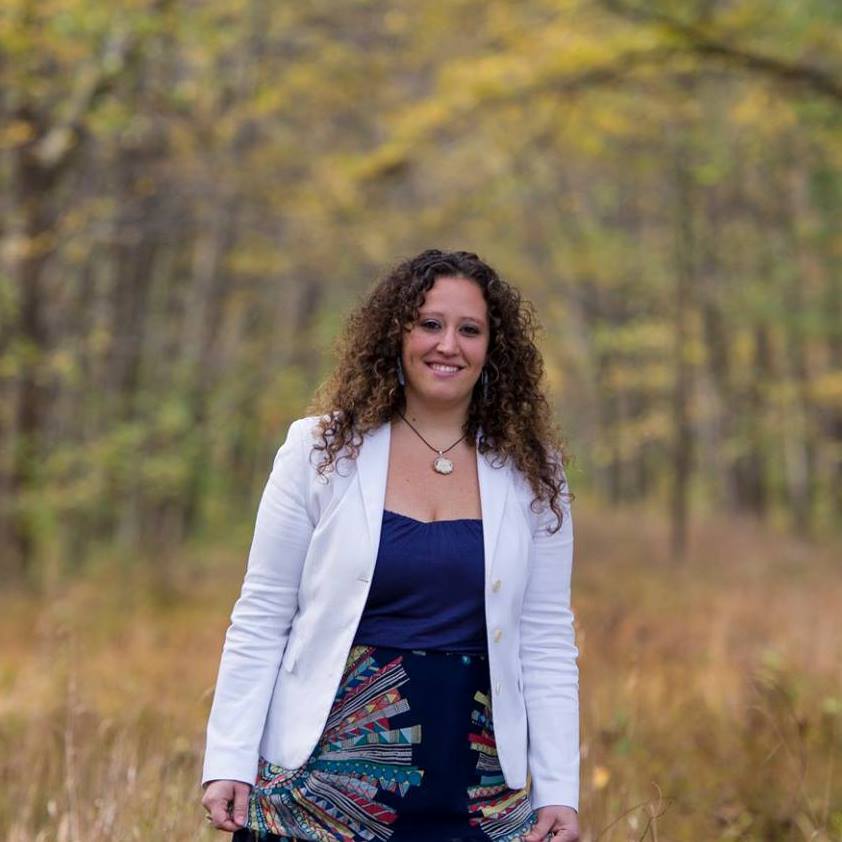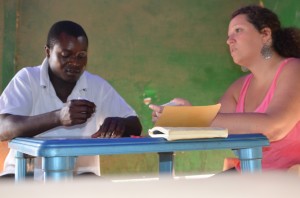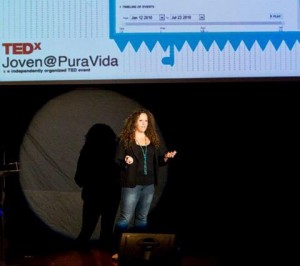Five-Year Updates: Meet Yanina Seltzer, F09
Today, let’s meet another graduate from Fletcher’s Class of 2009, Yanina Seltzer.
Pre-Fletcher Experience
 I was born in Argentina, raised in Costa Rica and finalized my higher education in the United States. From a very early age, I developed a global perspective, especially regarding culture, economic issues, and social realities. I was exposed to harsh economic injustices and social inequalities that sparked my passion for influencing issues surrounding poverty. In college, I focused my studies on politics, economics, and Latin American studies, in line with my upbringing. During this time, I interned at Habitat for Humanity, the Costa Rican Legislative Assembly, and the Inter-American Court of Human Rights.
I was born in Argentina, raised in Costa Rica and finalized my higher education in the United States. From a very early age, I developed a global perspective, especially regarding culture, economic issues, and social realities. I was exposed to harsh economic injustices and social inequalities that sparked my passion for influencing issues surrounding poverty. In college, I focused my studies on politics, economics, and Latin American studies, in line with my upbringing. During this time, I interned at Habitat for Humanity, the Costa Rican Legislative Assembly, and the Inter-American Court of Human Rights.
After graduation, I served as an economic analyst at Nathan Associates and as a research analyst at the Inter-American Development Bank. My academic background and professional experience prepared me for Fletcher. It was clear to me that, through my graduate studies, I could maintain my goal of decreasing poverty and inequality by continuing to focus on international development, but also could broaden my regional scope and my understanding of the role of business and the private sector.
At Fletcher
When I arrived at The Fletcher School my academic focus was development economics and international business. Yet I also took time for establishing and enjoying community with my peers, which included dancing at nearly every Culture Night. Exploring the business and finance world would bring an important perspective to the work I had already been doing. There were two specific classes, both from my first year, that had a uniquely profound influence on my professional and personal development. The first was Microfinance: Issues and Breakthroughs with Prof. Kim Wilson, which really broadened my understanding of development. I learned that increasing economic opportunities for the poor involves an active role from the private sector, entrepreneurship, innovation, and technology as a central catalyst. The second influential class was Prof. Rusty Tunnard’s class in International Consulting. Our project with Sun Microsystems crystallized for me the role that technology plays in poverty alleviation. Creating an engagement strategy for a large technology company in order to bring technology to the Base-of-the-Pyramid (BOP) merged my previous concepts of finance and technology with the necessary role of social innovation.
I then spent my summer in Rio de Janeiro, interning with Mobile Metrix, a social enterprise that does market research at the BOP. When I returned to Fletcher in the fall, in addition to my Fletcher classes, I cross-registered at the business and medical schools at Harvard. Through those additional classes, I learned how innovative solutions are applied around the world to solve social problems. And as I neared the end of my time at Fletcher, I knew exactly where I would land in the global economics landscape: Financial Inclusion.
Post-Fletcher
 After graduating, I completed a summer internship at CGAP/ World Bank. I admired the work of CGAP from afar as a graduate student. It wasn’t long before CGAP asked me to continue beyond my internship experience. My initial focus involved regulatory issues in branchless banking. My work then evolved to market-level analyses and projects centered on mobile-financial services.
After graduating, I completed a summer internship at CGAP/ World Bank. I admired the work of CGAP from afar as a graduate student. It wasn’t long before CGAP asked me to continue beyond my internship experience. My initial focus involved regulatory issues in branchless banking. My work then evolved to market-level analyses and projects centered on mobile-financial services.
In 2011, I relocated to Brazil for nine months, where I spearheaded CGAP’s Brazil strategy in financial inclusion. During this time, I solidified partnerships with some of the largest banks, such as Bradesco and Caixa. I initiated innovative projects with these actors and the private sector, facilitated regulatory discussions with the Central Bank, led workshops with banking associations and Ministries, and interacted with leading stakeholders in financial inclusion. I also led our research agenda, where I got to engage directly with hundreds of low-income customers and understand the reality of their ever-complicated needs and behaviors around financial services.
It was during this time in Brazil that I met hundreds of people living in Rio’s slums, in low-income communities in Sao Paulo, and in peri-urban towns in Recife. This direct interaction gave me long-lasting and unforgettable insights into designing products and services that empowered them and made sense for their lives. In an effort to truly support them in their economic lifestyles, hopes, needs and possibilities, it became clear that face-to-face connection would be the greatest influence in efforts to design inclusive products, services, and experiences.
 Two years post-graduation, I was invited to deliver a TEDx talk in my home country of Costa Rica, which was particularly powerful for me. My talk centered on the role of technology in international development and I continue to advocate for that perspective in my current role, which includes leading CGAP’s work-stream in Human-Centered Design and Financial Inclusion and customer-centricity. It came as no surprise that the concepts behind human-centered design center on the influence that direct conversation, observation, and customer-centricity have on innovation. I have been deeply involved with a total of seven financial service providers and several world-class design firms in order to understand low-income customers and better design and deliver products and services to them.
Two years post-graduation, I was invited to deliver a TEDx talk in my home country of Costa Rica, which was particularly powerful for me. My talk centered on the role of technology in international development and I continue to advocate for that perspective in my current role, which includes leading CGAP’s work-stream in Human-Centered Design and Financial Inclusion and customer-centricity. It came as no surprise that the concepts behind human-centered design center on the influence that direct conversation, observation, and customer-centricity have on innovation. I have been deeply involved with a total of seven financial service providers and several world-class design firms in order to understand low-income customers and better design and deliver products and services to them.
Five years post-Fletcher I remain at CGAP, devoted to topics and concepts that are a true reflection of Fletcher’s nature. My education and my professional experience are the epitome of an interdisciplinary experience: a combination of research methods, creative thought, and business strategy that consistently anchors on the fact that real individuals and communities are the heart of everything we seek to design for and understand. I am recently married and know that my time at Fletcher prepared me for success professionally and personally! Each day, I am full of gratitude for my Fletcher experience and its extended community of alumni and educators.